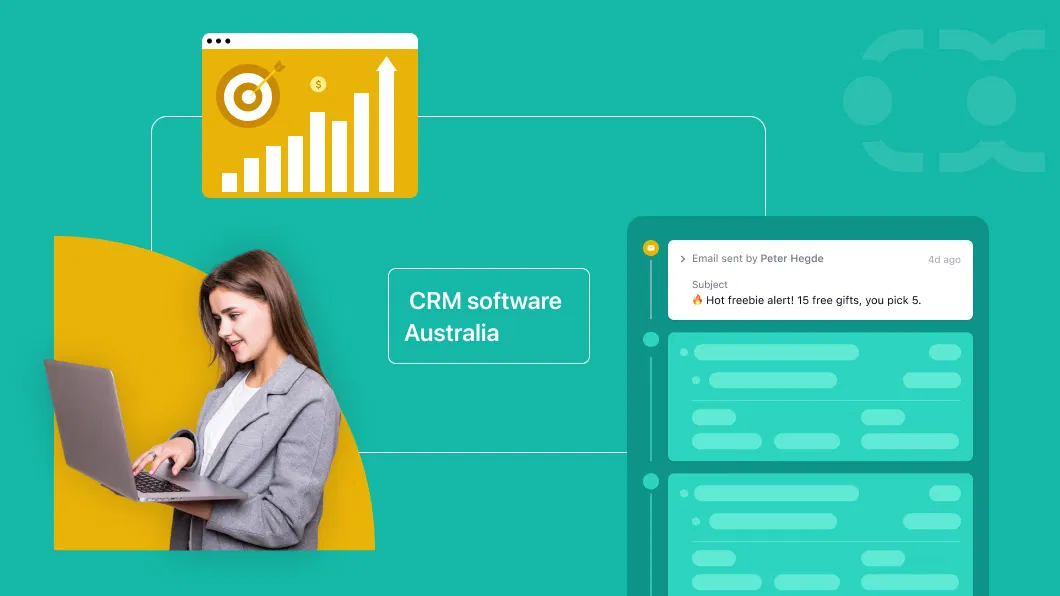In today’s rapidly evolving business landscape, digital transformation is no longer optional; it’s a necessity for Australian SMEs (Small and Medium-sized Enterprises) to stay competitive and relevant. At the heart of this transformation lies a powerful tool—Customer Relationship Management (CRM) systems like Salesforce and Zoho. This article explores the pivotal role of CRM in digital transformation and how it can drive business growth for Australian SMEs.
Understanding Digital Transformation for SMEs in Australia
What is Digital Transformation?
Digital transformation refers to the integration of digital technology into all areas of a business, fundamentally changing how it operates and delivers value to customers. For Australian SMEs, this transformation often includes adopting tools that improve efficiency, streamline operations, and provide deeper insights into customer behavior to migrate data to Salesforce.
Challenges Faced by Australian SMEs in Digital Transformation
Despite the clear benefits, many Australian SMEs face challenges when embarking on a digital transformation journey. These include:
- Limited resources: SMEs often struggle with tight budgets and a lack of technical expertise.
- Complexity: Implementing new systems while ensuring minimal disruption to business operations can be daunting.
- Adapting to Change: Many SMEs find it difficult to transition from traditional methods to digital-first processes.
However, a well-implemented CRM system can address these challenges by offering affordable, scalable solutions tailored to the needs of growing businesses.
The Power of CRM in Driving Digital Transformation
What is CRM and How Does It Fit into Digital Transformation?
A Customer Relationship Management (CRM) system is a software platform that manages a company’s interactions with current and potential customers. It centralizes data, automates processes, and provides insights that are crucial to improving customer engagement, streamlining sales processes, and ultimately driving business growth.
For SMEs in Australia, CRM acts as the backbone of digital transformation. It helps businesses unify their marketing, sales, and customer service functions, enabling smoother operations and more informed decision-making.
Aligning CRM with Digital Transformation Goals
When implementing digital transformation, SMEs should aim to achieve specific goals such as:
- Enhancing customer relationships: Building a better understanding of customer needs.
- Automating repetitive tasks: Freeing up time for employees to focus on high-impact activities.
- Leveraging data for growth: Using analytics to drive data-driven decisions.
A CRM system like Salesforce or Zoho is perfectly suited to help businesses achieve these goals by offering customizable solutions tailored to their specific requirements.
Key Benefits of CRM for Australian SMEs
Enhancing Customer Relationships
One of the core advantages of CRM systems is their ability to help businesses improve customer relationships. By tracking interactions and preferences, a CRM enables companies to deliver personalized services, leading to increased customer loyalty and satisfaction.
Automating Business Operations
Automation is a critical component of digital transformation. With CRM, businesses can automate a variety of tasks such as:
- Marketing campaigns: Automated emails and targeted marketing efforts.
- Sales pipelines: Automatically moving leads through the sales funnel.
- Customer service: Chatbots and self-service portals for quicker issue resolution.
This level of automation not only increases efficiency but also reduces the likelihood of human error.
Data-Driven Decision Making
In today’s data-driven world, having access to accurate and timely information is critical. CRMs collect and analyze data, providing businesses with actionable insights into customer behavior, sales trends, and overall business performance. These insights help SMEs make better strategic decisions that drive growth and enhance customer satisfaction.

How Salesforce and Zoho CRMs Empower Australian SMEs
Salesforce CRM for Business Growth
Salesforce CRM offers a comprehensive suite of tools designed to meet the needs of SMEs looking to scale. Its features include:
- Lead tracking: Salesforce helps businesses manage and track leads throughout the sales cycle.
- Customizable dashboards: Real-time data visualization to monitor business performance.
- Advanced integrations: Seamless integration with third-party apps like Google Workspace, Slack, and more.
These features make Salesforce an ideal choice for businesses aiming to grow and manage increasing customer data.
Zoho CRM for Cost-Effective Digital Transformation
For SMEs that need a more budget-friendly solution, Zoho CRM provides a cost-effective alternative. Zoho’s user-friendly interface and versatile features make it a popular choice for small businesses. Key benefits include:
- Customizable workflows: Tailor workflows to suit specific business processes.
- Omnichannel communication: Connect with customers via email, social media, phone, and live chat from one platform.
- Affordability: Zoho offers tiered pricing plans that make it accessible for smaller businesses without compromising on essential features.
Both Salesforce and Zoho CRM offer robust platforms to drive digital transformation and empower Australian SMEs to compete in the digital age.
Steps to Implement CRM in Your Digital Transformation Journey
Assessing Your Business Needs
Before implementing a CRM, it’s important for SMEs to assess their specific business needs. What processes need automation? Where are customer relationships faltering? Defining clear goals will help ensure that the CRM implementation aligns with the overall digital transformation strategy.
Choosing the Right CRM Platform
When deciding between Salesforce and Zoho, businesses should consider factors like:
- Budget: Salesforce is more feature-rich but may come at a higher cost, while Zoho provides a more affordable option.
- Customization needs: Salesforce offers extensive customization for larger businesses, whereas Zoho is easier to implement for smaller operations.
- Support: Ensure the CRM provider offers adequate support and training.
CRM Integration and Training
Once the CRM is chosen, integrating it with existing systems like accounting software or marketing tools is crucial for seamless operations. Equally important is employee training to ensure the team fully utilizes the CRM’s capabilities.
Future Pulse – Your Partner in CRM-Driven Digital Transformation
At Future Pulse, we specialize in helping Australian SMEs leverage the power of Salesforce and Zoho CRMs to drive digital transformation. As certified experts, we offer end-to-end services, including:
- CRM consulting and strategy development.
- Seamless CRM implementation and data migration.
- Custom CRM solutions tailored to your business needs.
- Ongoing support and training to ensure long-term success.
Our team works closely with businesses to understand their unique challenges and craft solutions that accelerate growth, improve efficiency, and enhance customer relationships.
Conclusion
In the competitive Australian market, digital transformation is crucial for SMEs to remain agile and innovative. CRMs like Salesforce and Zoho play a pivotal role in this journey, helping businesses streamline operations, enhance customer relationships, and make data-driven decisions. If you’re ready to take the next step in your digital transformation journey, partner with Future Pulse—your trusted Salesforce and Zoho CRM consulting experts.




